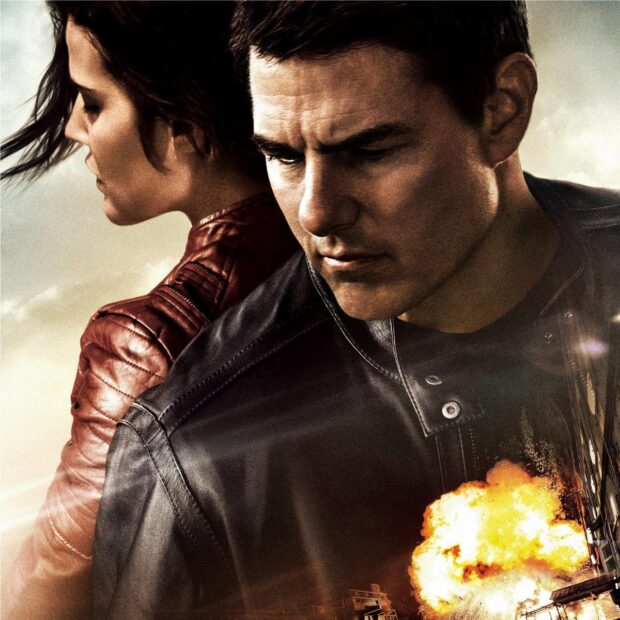Mary Shelley’s Frankenstein is, unlike its star, less than the sum of its parts.
Looming in the shadow of Francis Ford Coppola’s Bram Stoker’s Dracula, Kenneth Branagh’s Mary Shelley’s Frankenstein tries to ride the gothic wave Coppola ignited. Both films are lush, grandiose adaptations of classic horror, but while Dracula leaned into sensuality and dark romance, Frankenstein grapples with themes of ambition, creation, and the moral consequences of defying nature. Branagh’s film is visually ambitious, though it occasionally buckles under the weight of its own intensity.
Like Dracula, Frankenstein boasts a heavyweight cast. Branagh directs and stars as Victor Frankenstein, delivering a performance full of, what else, Shakespearean energy, if sometimes veering into melodrama. Robert De Niro’s portrayal of the creature is a standout. Unlike the grunting monster of earlier adaptations, De Niro’s creature is complex and tragic, embodying fear, sorrow, and fury in equal measure. Their scenes together, particularly when the creature confronts Victor about his abandonment, carry real emotional weight and elevate the film beyond the more melodramatic tendencies of Branagh’s performance.
The supporting cast adds further prestige, though their impact varies. John Cleese, in a rare dramatic role, plays Victor’s mentor, Professor Waldman, with surprising gravitas, warning Victor of the dangers of playing god in a way that feels genuinely haunting. Ian Holm, as Victor’s father, offers a performance rich in paternal warmth and quiet disappointment, serving as an emotional anchor amidst the chaos of Victor’s growing obsession. Holm’s understated approach gives the film a needed sense of grounding.
Tom Hulce, as Henry Clerval, serves as the film’s version of Igor—a moral compass and loyal companion to Victor. Unlike the physical, deformed assistants of previous Frankenstein adaptations, Hulce’s Clerval doesn’t aid with the grisly experiments but provides the emotional support Victor refuses to accept. He’s the voice of reason who ultimately suffers for his loyalty, though Hulce’s performance can feel more functional than dynamic. He’s there to provide balance, much like Igor, but without the iconic aesthetic.
Helena Bonham Carter’s Elizabeth starts as a standard romantic interest, but as the film moves toward its climax, her character takes a significant twist. In a slight departure from Shelley’s novel, Branagh resurrects Elizabeth as the creature’s mate in one of the film’s most tragically striking and grotesque moments. Bonham Carter handles this transformation with intensity, but the rapid pacing of the final act limits the development of her character beyond her tragic fate.
Visually, Mary Shelley’s Frankenstein is nothing short of a gothic feast. The film’s sets, from the eerie, sterile laboratory to the vast, misty landscapes, create an atmospheric backdrop, much like Coppola’s Dracula. However, where Coppola favoured warm, seductive colours, Branagh opts for a colder, harsher palette—reflecting the isolation and ambition that drive Victor’s descent. The grandness of the film’s production design mirrors the lofty philosophical themes it tries to tackle: creation, destruction, and the consequences of hubris.
Where the film stumbles is in its tonal balance. Branagh’s Victor often teeters on the edge of melodrama, and while the film stays faithful to the novel’s philosophical roots, it sometimes sacrifices emotional depth for spectacle. Where Coppola’s Dracula embraced its operatic excess with a sly wink, Branagh’s Frankenstein takes itself seriously, almost to a fault. This high-minded approach can make the film feel ponderous, especially in moments that should resonate more on an emotional level.
That said, De Niro’s creature remains the emotional core. His performance is deeply layered, and the pathos he brings to the role evokes real sympathy. The creature is no simple monster—he’s a tragic figure, rejected by his creator and forced to grapple with the existential horror of his own existence. In De Niro’s hands, the creature becomes a symbol of Victor’s hubris, making their dynamic the most compelling aspect of the film.
Mary Shelley’s Frankenstein is a film of grand ambition and visual splendour, but it doesn’t always hit the emotional marks it aims for. Where Bram Stoker’s Dracula was a fever dream of gothic romance and horror, Branagh’s Frankenstein feels more like a grand intellectual exercise—an impressive monument to Shelley’s ideas, though one that occasionally loses sight of the human story at its heart.









